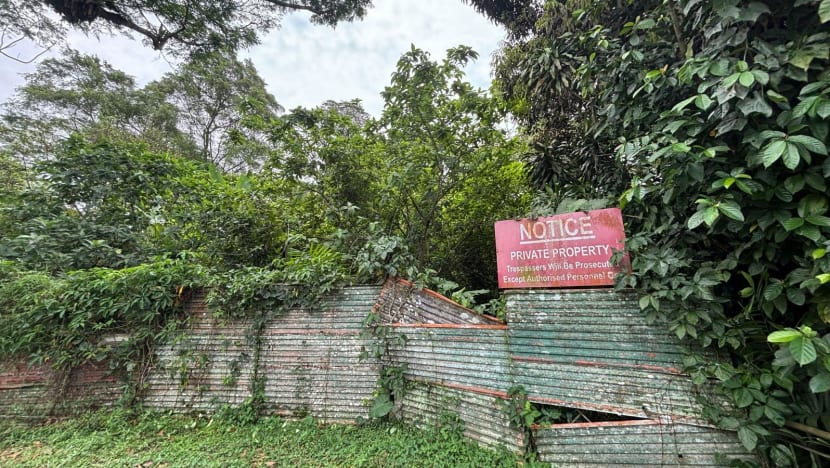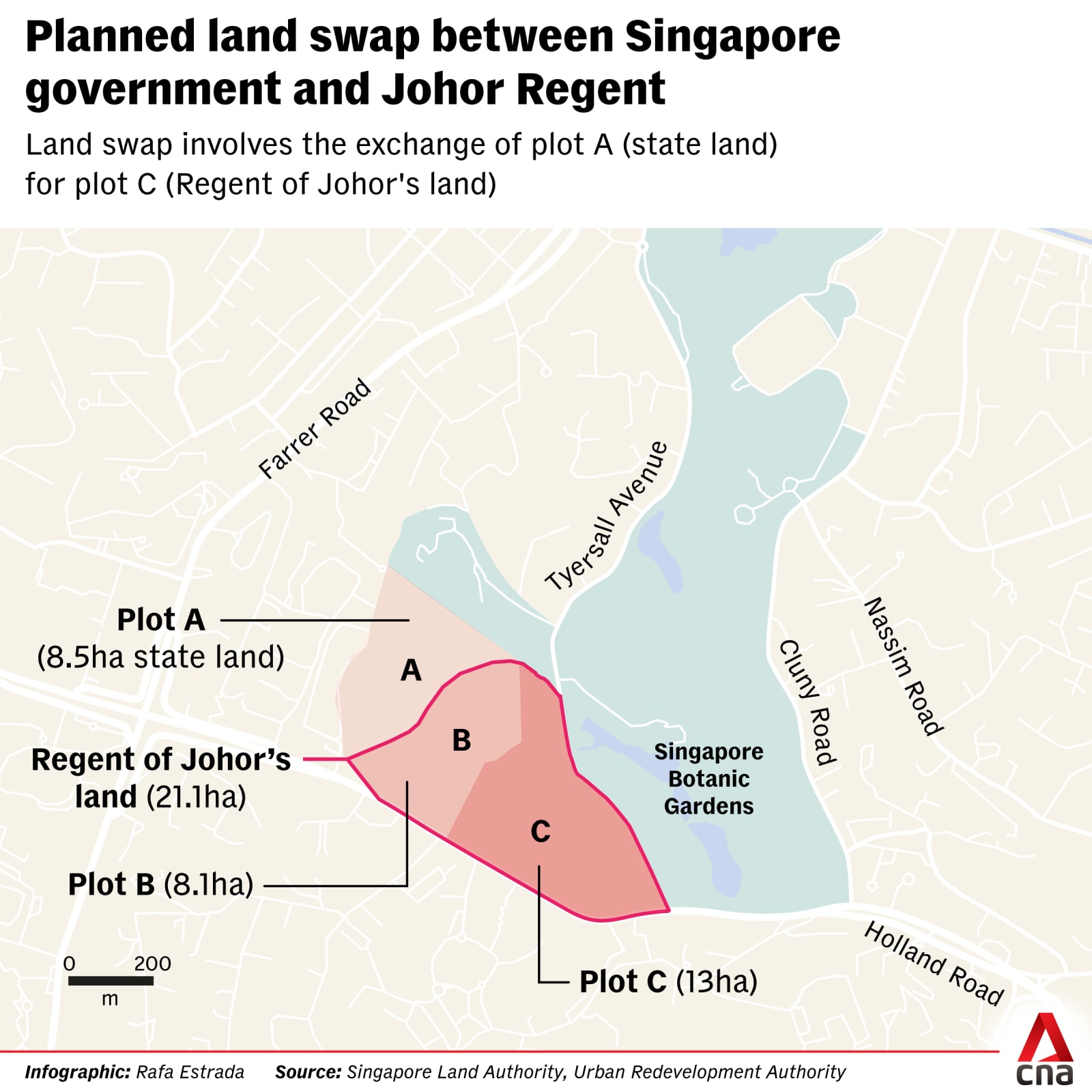Singapore and Johor regent agree to swap land parcels at Holland Road
The Johor royal family has, for generations, privately owned 21.1ha of land near the Botanic Gardens.

A sign saying “private property” seen outside private land owned by the Johor royal family along Holland Road. (Photo: CNA/Tang See Kit)

This audio is generated by an AI tool.
SINGAPORE: The Singapore government has agreed to swap land parcels at Holland Road with Johor’s regent Tunku Ismail Sultan Ibrahim, the Urban Redevelopment Authority (URA) and the Singapore Land Authority (SLA) said on Tuesday (Jun 10).
Tunku Ismail, who is also Crown Prince of Johor, currently owns 21.1ha of land at Holland Road. The Johor regent “plans to develop his land”, which has been under the private ownership of the Johor royal family for generations, the authorities said in a joint media release.
The land swap is so that the regent's "planned developments will be further away from the Singapore Botanic Gardens UNESCO World Heritage Site”, the press release said.
The 166-year-old Singapore Botanic Gardens is Singapore’s first World Heritage Site under the United Nations body, after being awarded the coveted status in 2015.
In response to questions from CNA, SLA and URA said in a joint reply: “The Regent of Johor wanted to develop the land that he owned and would need to apply to do so.
“When approached for permission, the government assessed that it was preferable for any potential development to be further away from the Singapore Botanic Gardens UNESCO World Heritage Site.”
They added that the land swap is “a transaction between the Singapore government and a private individual”, with no involvement of the Malaysian and Johor State governments.
The land swap is expected to be completed by 2025.
Under the land swap, the Johor regent will transfer part of his land – a 13ha parcel bordered by Tyersall Avenue to its east and sitting beside the Botanic Gardens – to the Singapore government.
In exchange, the Singapore government will transfer 8.5ha of state land to the Johor regent. This piece is located to the west of the land privately owned by the Johor regent.
“The land parcels to be swapped are of comparable value,” the authorities said.
The remaining 8.1ha of land in between will remain under the regent’s private ownership.
Asked how the value of the land parcels to be exchanged were derived to be “comparable” despite the size difference, URA and SLA said both plots of land, which are freehold, are suitable for low-rise low-density residential uses given surrounding residential uses and their proximity to the Singapore Botanic Gardens.
But the 8.5-hectare state land “can be developed for higher intensity residential developments”. This is because it is located further away from the portion of the Singapore Botanic Gardens that was inscribed as a UNESCO World Heritage site and abuts existing residential developments with a plot ratio of 1.4.
Currently, there are height restrictions in place for properties near the Singapore Botanic Gardens to protect the visual landscape of the gardens.
For example, those with a plot ratio of 1.4 are allowed to be a maximum of four storeys tall. This is shorter than the five-storey limit in place for other residential sites in Singapore with the same plot ratio.

The Singapore government noted that it will keep the 13ha of land to be transferred from the Johor regent as “undeveloped for now, while keeping open our future plans for the area”.
Parts of the land owned by the Johor regent are currently labelled on URA's website as “special use”, indicating areas used or intended for special purposes. The rest are zoned as "open space".
The 8.5ha state land to be transferred to the regent is currently indicated as “special use”.
A 2021 Bloomberg report said the Johor regent had plans to develop a “multibillion-dollar luxury residential project” on his family's plot of land in Singapore, which lies in Tyersall Park and includes the ruins of Istana Woodneuk.
Istana Woodneuk, along with the torn-down Istana Tyersall, served as the palaces of Johor’s former Temenggong Abu Bakar Daeng Ibrahim in the late 19th century.
The Bloomberg report, citing sources, said Tunku Ismail was seeking permission to develop the land into a “cluster of high-end homes”.
Authorities said on Tuesday that any development plans will be subject to due process, noting that URA and its agencies will assess such applications to ensure the proposed development is “sensitive to the surrounding site context”.
The development will also be subject to environmental studies before works commence.















